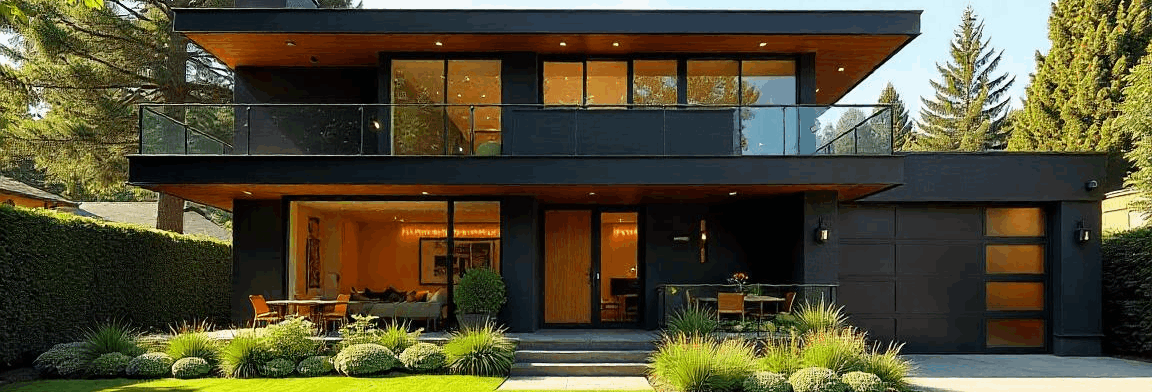Top 3 Long-Term Factors to Consider Before Buying a Home


Purchasing a home is one of the biggest financial decisions you’ll make in your life, and while it’s easy to get caught up in the excitement of finding your dream space, it’s crucial to think long-term before you commit. Real estate is an investment, and when you’re buying a home, you’re not just considering how it fits into your life today, but also how it will accommodate your future needs.
Whether you’re buying in a competitive market or simply navigating the emotions that come with a big purchase, here are three important factors to consider as part of your long-term plan when purchasing a home.
1. Work from Home: Will Your Space Accommodate Remote Work?
The way we work has changed dramatically in recent years, and remote work is now a common part of many people’s professional lives. Even if you don’t currently work from home, it’s important to consider whether your home would comfortably support remote work in the future. With hybrid work models becoming more popular, it’s likely that many people will spend at least part of their work week at home.
Key questions to ask yourself:
-
Do you need an office space? If you anticipate needing a dedicated space to work from home, think about how much room you’ll need. A small nook or corner might work for now, but a separate office could be more ideal as your career evolves.
-
How will your space function? Consider not just how much space you need, but how functional the layout will be for future work setups. You might need room for a desk, storage, or quiet areas to take calls without distractions.
-
What about privacy and noise? If you plan on working from home regularly, think about the level of privacy and noise control your home provides. Can you carve out a quiet area that allows you to focus?
Pro Tip: Even if remote work isn't part of your life now, consider the possibility of changing work dynamics and whether your home can accommodate it in the future. A flexible space, such as an extra bedroom or a finished basement, could serve as an ideal home office.
2. Do You Need Space for a Growing Family?
When purchasing a home, many buyers are focused on their immediate needs—such as finding a space they love, a good location, and a reasonable price. But it’s also important to think about what your future holds. Will you want to expand your family? Will you need more space as your kids grow? These are questions that can have a huge impact on your choice of home and location.
Things to consider:
-
Number of Bedrooms/Bathrooms: As your family grows, your space needs will likely change. Consider how many bedrooms and bathrooms you may need to accommodate future children, guests, or other family members.
-
Yard and Outdoor Space: Will you need a yard for kids to play in or for pets? Think about how important outdoor space is to your family’s lifestyle in the coming years.
-
Proximity to Schools and Amenities: If you plan to have children, the local school district and proximity to parks, playgrounds, and family-friendly amenities should be part of your long-term decision-making process.
Pro Tip: Don’t just focus on your current lifestyle. Think ahead to how your living situation might change, especially if you plan to stay in the home for several years.
3. The Financial Impact of Moving Again: Think About Your Market Timing
While the idea of moving again in the future might seem appealing, it’s important to understand that selling a home isn’t always as easy or financially profitable as it may seem. Especially if you’re making a big financial stretch to buy a home, the costs involved in moving can add up quickly, and depending on the market timing, you may end up taking a loss.
Key considerations:
-
Transaction Costs: When you buy or sell a home, there are many costs involved, such as realtor fees, closing costs, repairs, and moving expenses. Even in a hot market, these costs can eat into your profit if you sell within a short time after purchasing.
-
Market Conditions: The real estate market can fluctuate over time. While prices may be high now, they could dip if the market cools, potentially making it harder to sell at a profit in the future. If you purchase a home at the peak of the market, selling it too soon could result in a financial loss.
-
The Cost of Selling: If you move again after just a few years, you might not have enough equity in the home to cover your selling costs and buy a new one, especially if the property value hasn’t increased as much as you anticipated.
Pro Tip: Before making a purchase, consider how long you plan to stay in the home and whether you’ll be able to recoup the costs of buying and selling if you decide to move again within a few years.
Conclusion
Purchasing a home is not just about meeting your current needs—it's about preparing for the future. By considering how your space will function for remote work, anticipating family growth, and evaluating the potential financial costs of moving again, you’ll be making a decision that will set you up for long-term success. Yes, you can always move again, but moving costs money, and depending on market conditions, a short-term sell could cost you.
Taking the time to think long-term will help ensure that the home you purchase today will continue to meet your needs in the years to come. So, before you make that offer, ask yourself: Will this home work for me in the future? If the answer is yes, you’ll be in a much stronger position to make a solid investment for the years ahead.
Ready to find a home that fits both your current and future needs? Let’s talk about how we can make that happen for you!
Categories



